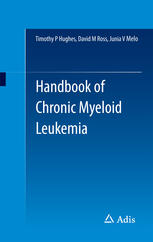

Most ebook files are in PDF format, so you can easily read them using various software such as Foxit Reader or directly on the Google Chrome browser.
Some ebook files are released by publishers in other formats such as .awz, .mobi, .epub, .fb2, etc. You may need to install specific software to read these formats on mobile/PC, such as Calibre.
Please read the tutorial at this link: https://ebookbell.com/faq
We offer FREE conversion to the popular formats you request; however, this may take some time. Therefore, right after payment, please email us, and we will try to provide the service as quickly as possible.
For some exceptional file formats or broken links (if any), please refrain from opening any disputes. Instead, email us first, and we will try to assist within a maximum of 6 hours.
EbookBell Team

5.0
40 reviewsThis concise, clinically focused pocket handbook assembles and synthesizes the latest developments and trends in the diagnosis and treatment of CML and provides an authoritative and convenient summary of the latest progress in TKI trials, the molecular monitoring of CML responses, and the development of new therapies to overcome resistance and improve patient care. Chronic myeloid leukemia (CML) is a rare type of leukemia (1–2 per 100,000 people) but is the most common chronic myeloproliferative neoplasm. CML remains a key model for the improved understanding of the pathophysiology of a malignancy at a molecular level; CML was the first cancer to be associated with a recurring chromosome abnormality, which generates the Philadelphia (Ph) chromosome and its associated fusion gene BCR-ABL1. The clinical outcome for patients with CML has changed dramatically in the past 15 years and this has been due to the development of tyrosine kinase inhibitors (TKIs), compounds that inhibit the activity of the oncogenic BCR-ABL1 protein. A number of first-, second- and third-generation TKIs are now available for the treatment of CML, although a number of treatment challenges remain, not least the development of treatment-resistant CML. Parallel to the development of specific drugs for treating CML, major advances have been made in the field of disease monitoring and standardization of response criteria.